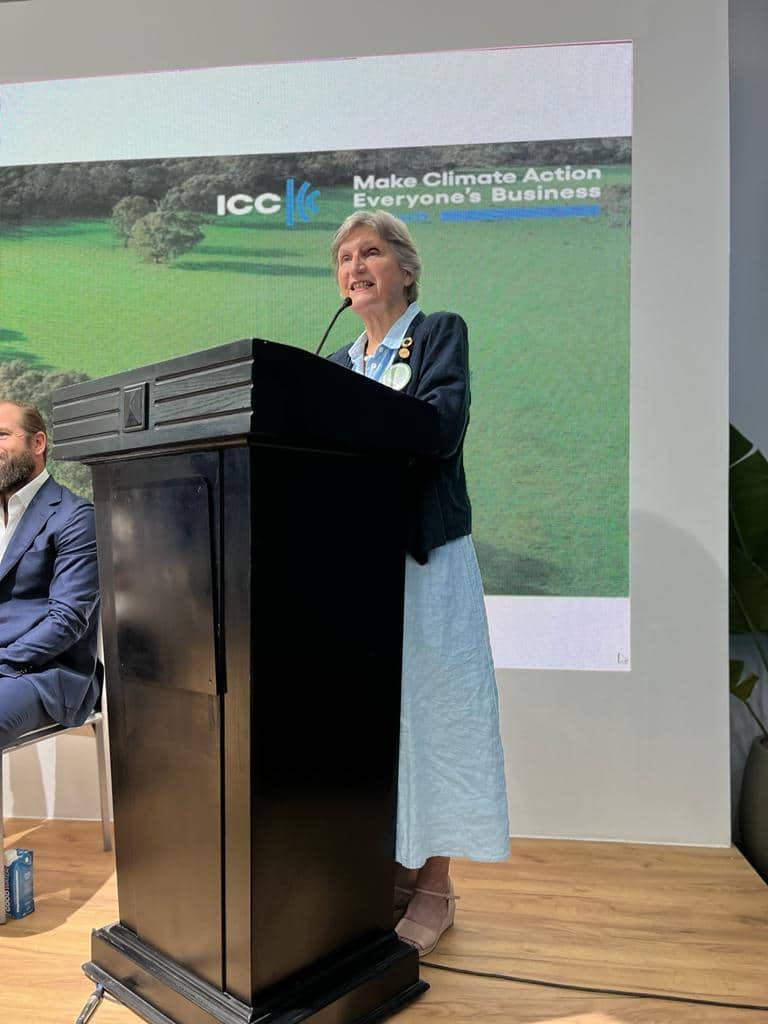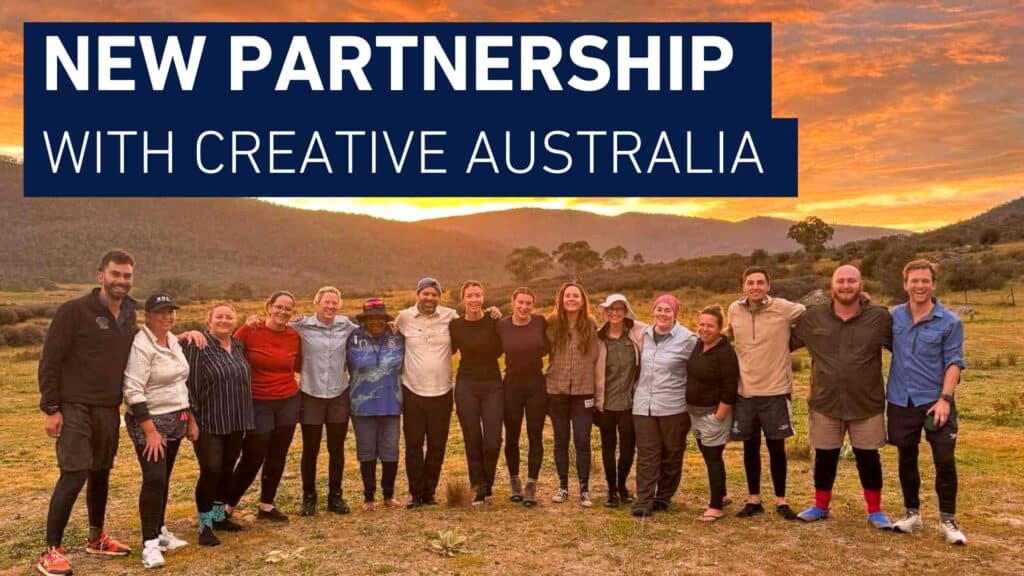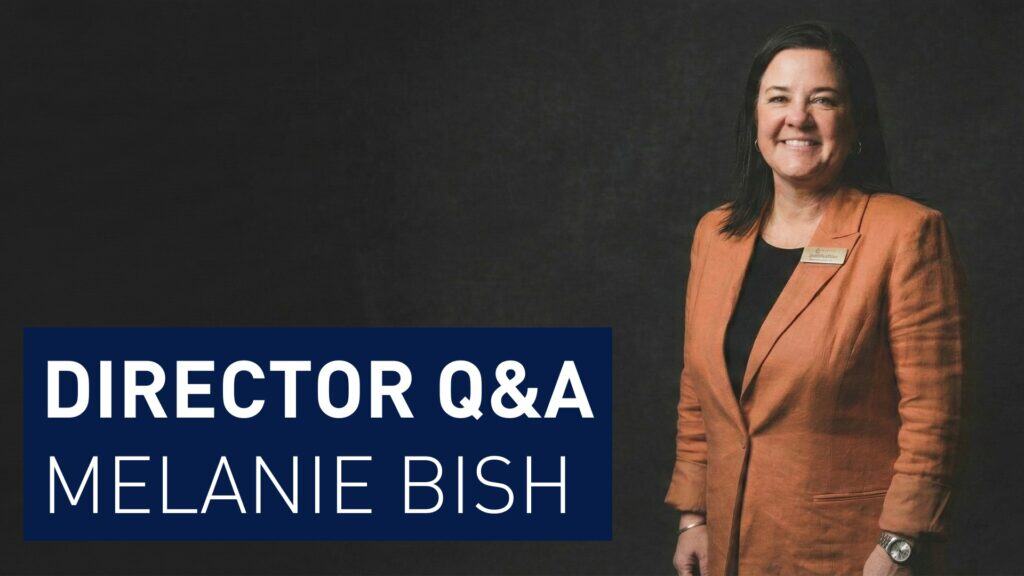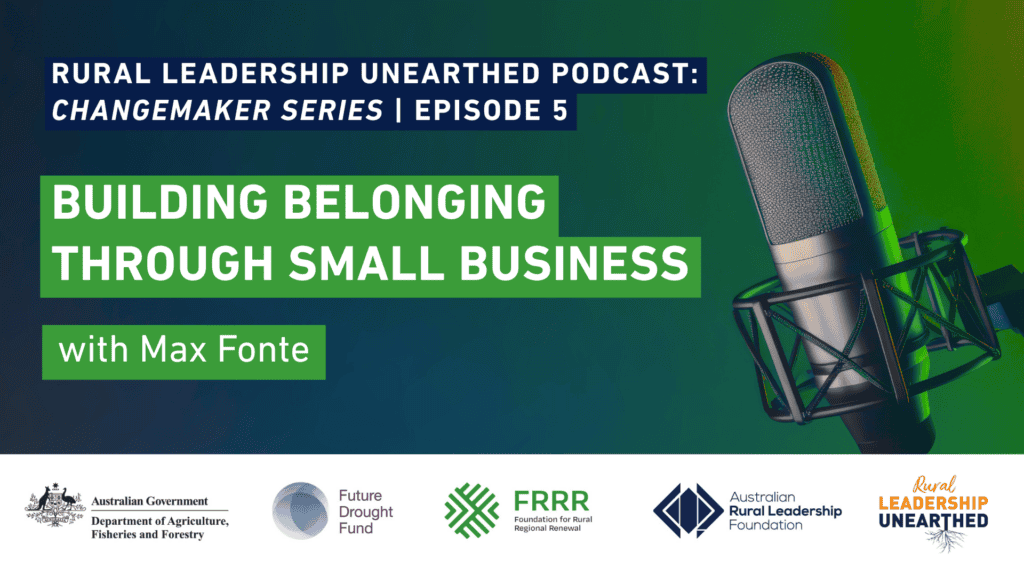Diana Gibbs’ experiences are a reminder that a leader in rural Australia can look like anyone, and come from anywhere.
This alumna of Course Five of the Australian Rural Leadership Program (ARLP) appears in her cohort directory as ‘a Cootamundra wool and grain producer and a consultant in resource economics and regional development’.”
But the passionate advocate for regional Australia only discovered her calling through a journey across the globe.
“I grew up in the West Indies where my English father was a medical academic, and my mother was French. I had a wild childhood roaming in a safe environment, until I was sent to boarding school in England at age 10,” Diana says.
After studying economics at London University, an unplanned period of travel and some casual work eventually saw Diana arrive in Australia with no money or plans.
“I got a job in Sydney with a big management consultant as a junior resource economist,” she says.
“During the ‘resources boom’ of the eighties, I did a Masters in Environmental Studies. I realised the inclusion of unpriced values in environmental decision-making was something that had to be grappled with,” she says.
“I took a job as chief economist for a firm of environmental planners, doing economic analysis on Environmental Impact Assessments, and felt there must be a better way of making decisions. I was thinking about a ‘triple bottom line’ approach before it became a thing.”
This consciousness of the wellbeing of people, land and the economic conditions in which they exist solidified when Diana married a Cootamundra sheep farmer and began a new life in the bush – applying her analytical eye to the Australian wool industry.
“I set up Riverina Wool Growers as a vehicle for locals to shift their wool production from simply ‘selling a commodity’ to actively ‘marketing a product’,” she says.
“I learned a lot about marketing and the wool supply chain. The internet came in the nineties, just in time to develop a global supply chain, and we focused on producing a high quality range of wool accessories, owned by wool growers passionate about the fibre and valuing Indigenous culture as the source of our designs.”
As an observer of the at-times notoriously political Australian wool industry, Diana had plenty of opportunity to reflect on effective leadership.
“I didn’t like the agro in the industry at the time. There was too much testosterone and ego. I would have been lost in it as a more quiet, logical and analytical person – I’m not into desk thumping or yelling.”
Through a mentor in her close-knit community, Diana became aware of the ARLP and decided to apply for Course 5, from which she graduated in 1999.
“My main lesson was the personal development side. I was a back-room analyst who sat at my computer working with complicated models. The ARLP taught me it’s really all about people. I discovered that I’m an extreme introvert and the ARLP helped me learn how to manage that. I also learnt that all values are valid, even if they’re not ones you share. People can disagree and that’s completely okay.”
These lessons served Diana well as she leaned in to a range of leadership roles in complicated fields.
“As an economic consultant working with the forestry industry I had a run-in with some extreme Greens on the north coast of NSW. It was the first time I’d experienced vitriolic hatred from people who didn’t know me … I addressed the group and introduced myself as a member of the Australian Conservation Foundation’s Council, with a Master of Environmental Studies. That wasn’t how they pictured an economist.”
From 2011 to 2016, Diana was again in the thick of complexity and conflict after an appointment to the Murray Darling Basin Authority (MDBA).
“Life is a continual learning. It was the first time the MDBA had an economist on the Board with so much background in economic development planning … six weeks in, at a meeting in Deniliquin with the minister Tony Burke, someone demanded the Board should be sacked as we were all ‘faceless men from Canberra’.
“I responded that I was a farmer, I live up the road, not in Canberra, and I am not a man,” Diana laughs. “I was trembling. I thought my legs would collapse, but things were becoming a bit ugly, so it’s what I needed to do.
“I focus on outcomes in all my regional development work. I brought what I learned from the ARLP into the MDBA role. Gaining acceptance for the Basin Plan was about hearts and minds. The front page of the Water Act says it’s about optimising social, economic and environmental outcomes – it’s about putting the whole socio-economic picture in the frame. Achieving success must involve the community and real consultation is about asking, and then really listening,” Diana says.
Following a range of leadership roles with agencies such as the NSW Rural Assistance Authority and Regional Development Australia (Riverina), in 2019 Diana became an Independent Director with Australian Forest Products Association (AFPA), and recently stepped into the role of Chair. She travelled to Egypt for the COP27 UN climate conference, embracing the opportunity to advocate for the forestry industry.
“With Australia’s new government and a global climate summit, we had a real opportunity to make decision makers take notice of the timber industry, and understand the critical role of carbon capture and storage that it can play on the path to net zero,” Diana says.
“Forestry is a part of agriculture. Some people see it as the enemy, but it’s not. Farm forestry is a fantastic integrated means of revenue diversification for farmers that also provides ecosystem services such as salinity reduction, erosion control, and the provision of shelter that can boost livestock yields. It also increases the supply of valuable timber used by the construction industry. It’s win-win-win,” she says.
“I have known Fiona Simpson [National Farmers Federation President] for years. NFF and AFPA going to COP in a joint delegation, with women representing both farming and forestry, was a powerful message.”
Over twenty years on from her ARLP graduation, the program and the people it connected her to are a touchstone for Diana.
“I can’t speak highly enough of the ARLP. It changed my life … I still draw on fellow alumni, and my cohort in particular, for advice and to discuss issues,” Diana reflects.
“When I was appointed to the MDBA, I called on members of my group who had come to hold roles such as Managing Director of Auscott, or President of the NFF. That easy access to amazing information and opinions was so helpful. ARLP provides a safe, non-judgmental listening group to explain any problem to. I absolutely respect their intellect and experience.”
Looking ahead Diana – who is now based on a property outside Wagga Wagga –continues to embrace roles in which she can contribute to positive outcomes for rural and regional Australia, no matter how challenging.
“Life is precious and short. If I can make a real difference, I think I have a moral responsibility to do so.”





